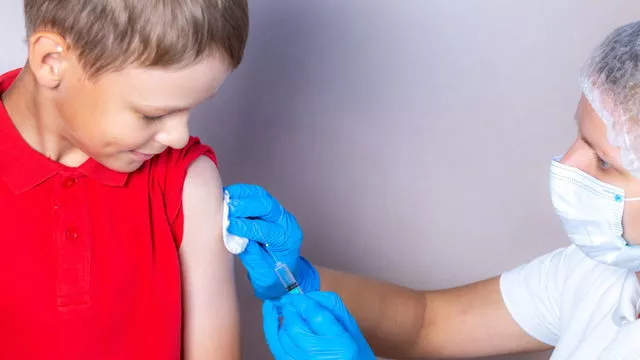On April 24-30, World Immunization Week is celebrated at the initiative of WHO. In light of this, mandatory vaccination initiatives among students in educational institutions are increasingly being discussed today. The Infourok platform conducted a survey among teachers and parents and found out how they feel about mandatory vaccinations in kindergarten and school. The chief physician of MEDSI children's clinics, pediatrician, allergist-immunologist, candidate of medical sciences, also shared her opinion on this topic. Tatyana Vyacheslavovna Semenycheva.
 9468
9468
The majority of surveyed users (61.6%) consider vaccination mandatory for all students in an educational institution. 38.4% of respondents were in favor of vaccination at the choice of parents. Also, the absolute majority (80.2%) of platform users agree with the statement that mandatory vaccination prevents the spread of infection and forms collective immunity.
78.5% of respondents are vaccinated together with their families according to the National Vaccination Calendar. Among those who refuse vaccination, 12.9% do so due to medical contraindications, and only 8.6% refuse vaccinations on principle.
Negative experiences with vaccination were reported 37.6% of respondents. Of these, 26.9% consider the side effects not critical, because the vaccination helped to avoid the disease, and 10.7% this negative experience turned them against vaccination in general.
“One of the principles of modern, preventive medicine is that it is better to prevent a disease than to treat it. Timely immunoprophylaxis is a priority direction of state policy in the field of health protection. It is important that a competent and responsible attitude towards health becomes an integral part of human culture. Therefore, vaccination, according to the National Vaccination Calendar, especially in the first two years of a child’s life, is an important moment in the formation of the so-called herd immunity against numerous infectious diseases.
A timely vaccination is your contribution to the health of your family and society. As a parent and as a teacher, I believe that the choice in favor of vaccination is, first of all, a choice in favor of a healthy nation, the guarantee of a healthy future for our children,” said Igor Zhaborovsky, founder, CEO of the Infourok educational platform, teacher, and author of methodological developments.
Tatyana Vyacheslavovna Semenycheva, Candidate of Medical Sciences, chief physician of MEDSI children's clinics, pediatrician, allergist-immunologist:
“The need for vaccination for children is an obvious question for most doctors and parents. The general list of vaccinations for children and adults is contained in the order of the Ministry of Health of the Russian Federation No. 1122N dated December 6, 2021 – this is the National Vaccination Calendar known to everyone. For children, there are clear recommendations for vaccination at an early age – up to two years. These are 13 vaccine-preventable infections: diphtheria, tetanus, whooping cough, polio, measles, mumps, rubella, pneumococcal and hemophilic infections, chickenpox, influenza, etc., for which there are many inactivated and live vaccines, and the choice of calendar and vaccine drug – this is the competence of the pediatrician, immunologist or general practitioner observing the child.
For adults, especially those with chronic diseases, employees of designated groups – doctors and teachers, pregnant women, etc., it is important to be vaccinated against influenza, diphtheria and tetanus, pneumococcal infection, hepatitis B and other infections. There are also traditional vaccinations for travelers such as tick-borne encephalitis, hepatitis A, yellow fever, etc. A complete list of vaccinations for adults can also be found in the National Vaccination Calendar. Routine vaccination against pneumococcal and meningococcal infections is of particular relevance for all groups of people. This is due to the high prevalence of these infections and severe complications, including death.
Vaccines against diphtheria, whooping cough, tetanus, hepatitis A and B are currently available in Russia , pneumococcal and meningococcal infections, HPV, tick-borne encephalitis, as well as measles, rubella and chickenpox. Yes, vaccinations do not guarantee that a person will not get sick with these infections, but if infection occurs, the disease will be mild and with minimal consequences.”
The survey has been conducted among 12,426 users of the Infourok educational platform.
